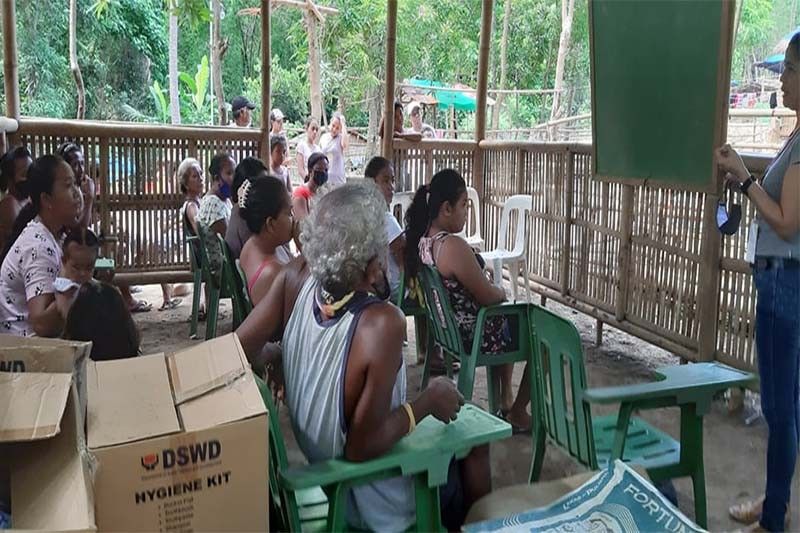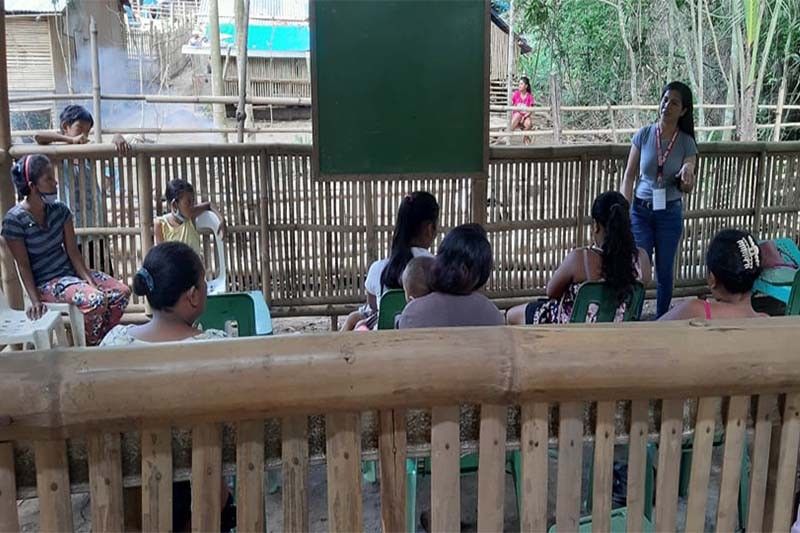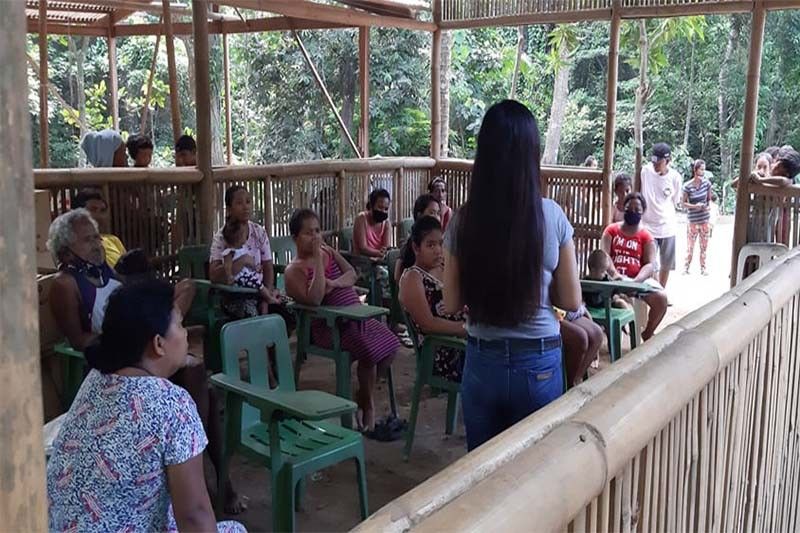Aetas displaced by Taal eruption to continue lessons through hand-delivered modules

MANILA, Philippines — Despite the threats of the COVID-19 pandemic, learning will continue for dozens of students of the Aeta community in San Luis, Batangas this month.
With the opening of classes pushing through on August 24, the students are expected to follow the so-called “new normal” in education, where face-to-face classes are not allowed.
Education Secretary Leonor Briones earlier said that this include blended learning through radio, television, online platforms and modules.
Late last month, President Rodrigo Duterte said there will be no face-to-face learning until a COVID-19 vaccine becomes available.
Ana Banaag, an Alternative Learning System teacher in San Luis, Batangas who teaches the Aeta community there, said that the students will likewise adopt this mode for their lessons.
“They will only transition to modular learning because they do not have internet,” Banaag said in Filipino in an online interview with Philstar.com.
She said that she will instead deliver the modules to students in the formal school and in ALS.
Like in other government schools, the modular classes for the students from the indigenous community will also begin on August 24.
Banaag said there will be no additional charges for this mode of learning.
“The modules will be delivered to them every Monday and will be picked up by Friday. So, that’s a week's load of assignment for them,” she said in Filipino.
She added, however, that the modules "will not be enough" for the students' learning needs.
There are an estimated 59 students from the Aeta community, based on the 2019 community profiling record. Majority of them are aged six to ten years old.
|
Age |
Classification |
Number of Population |
|
6-10 Years Old |
Primary School-Going Age |
26 |
|
10-14 Years Old |
Intermediate School-Going Age |
13 |
|
13-16 Years Old |
Secondary School-Going Age |
21 |
|
17-21 Years Old |
Tertiary School-Going Age |
0 |
|
Others: Special Education |
|
0 |
|
TOTAL |
|
59 |
According to an estimate in January, the community is comprised of 70 families, or around 300 people.
Before Taal erupted last January, they were residing in a seaside area in Barangay Banoyo, also in San Luis. However, the eruption forced them to relocate to a mountainous area of Banoyo, where they have been staying since.
Since September last year, they have been paying P700 a month for use of the plot of land they are living on.
They have since built a new learning center in the area.



Livelihood hurt by pandemic
In late January, weeks after ash from Taal Volcano destroyed their homes, Aeta chieftain Zosimo Magtibay told Philstar.com that their livelihoods suffered because of the lockdown imposed while Taal was active.
Banaag, who has been coordinating donations and relief efforts for the community from agencies and private sector, said that with the pandemic and the rising cases of COVID-19 in San Luis, the Aetas' livelihood is challenged anew.
“‘Di na sila makatrabaho, ‘di na makababa at nadami na rin ang cases sa bayan ng San Luis,” she said.
(They cannot work, they cannot go down (the mountains) since the cases are rising in the municipality of San Luis)
As of August 6, the Municipal Information Office of San Luis reported that there are 27 COVID-19 patients in the area.
Banaag said that some groups from the private sector recently visited the Aeta community to donate face masks and food packs.
She added that the municipal government also provided them rice and chicken in previous months.
With the worsening COVID-19 situation in the area and lockdown imposed in Metro Manila, Banaag said that some private donors who had pledged support — inlcuding donating roofing materials — cannot send in their help.
Despite this, Banaag said she is relieved that they now have a better shelter than before.
“At least alam kong mas kampante naman sila doon kesa katulad dati na nasa tabing ilog at dagat,” she said, adding that that Typhoon Ferdie is also felt in the area with strong rains and winds experienced by residents.
(At least I know that they are safer there that when they were residing beside the river and sea)
- Latest
- Trending





























